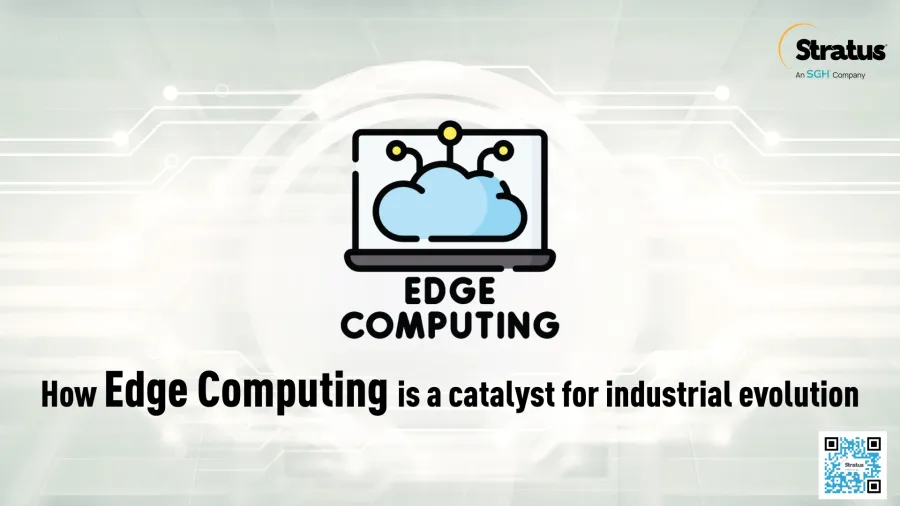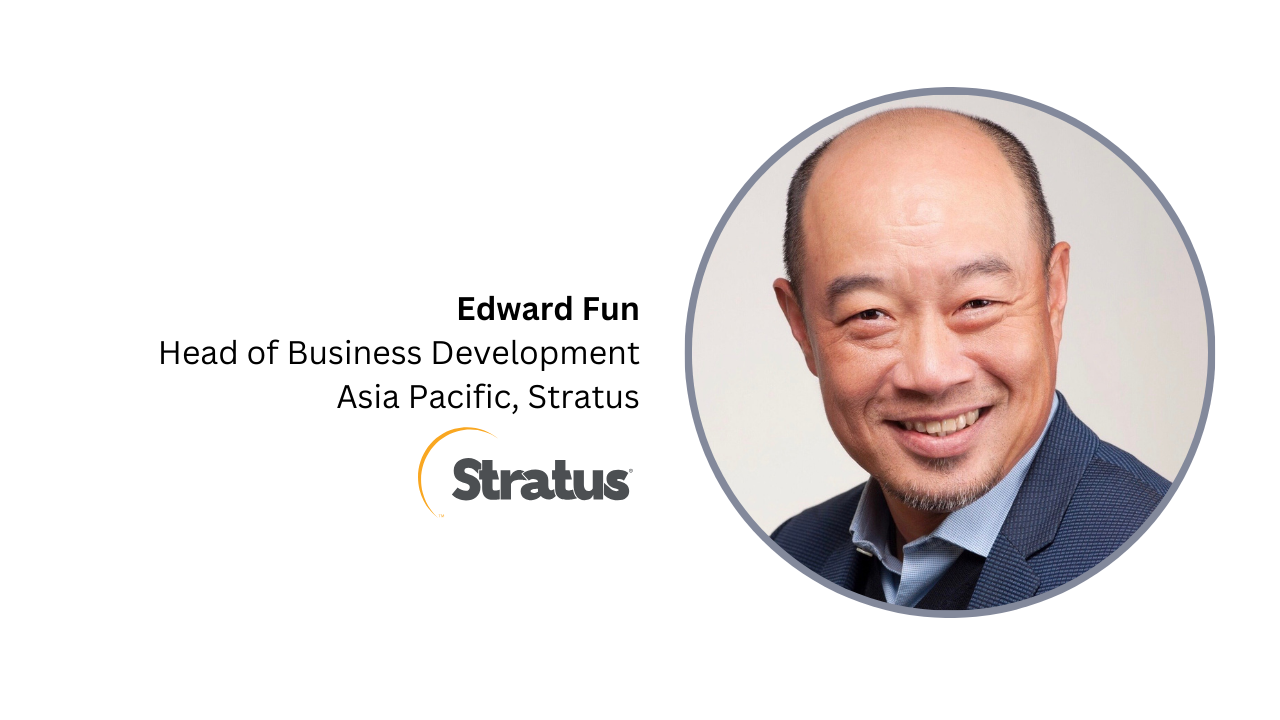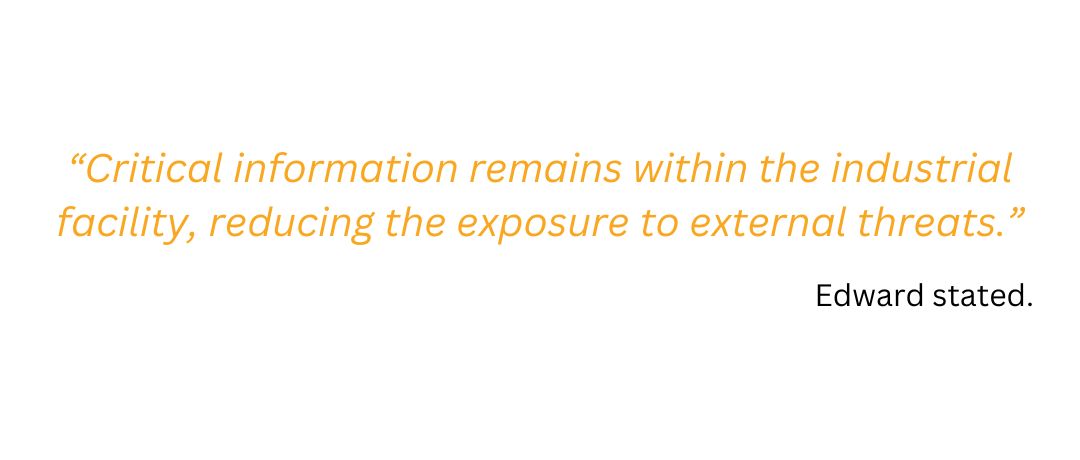
How Edge Computing is a catalyst for industrial evolution
In a use case scenario, Edge Computing has been known to boost production by 30%.
In today's rapidly evolving industrial landscape, operational efficiency is a cornerstone of success. However, industrial organisations face significant challenges in achieving optimal efficiency. These include legacy networks with limited bandwidth, disparate automation islands, and the ever-present threat of unplanned downtime.
Stratus, an expert provider of fault-tolerant and zero-touch computing platforms, found out that one of the biggest challenges for major players is limited bandwidth. This challenge intensifies as they adopt various Internet of Things (IoT) devices to collect diverse data, aiming to improve operational efficiency.
Despite these technological hurdles, companies often hesitate to abandon old systems due to fears of service disruptions. Yet, as the industry moves towards Industry 4.0, stagnation is not viable. The shift towards digital transformation is inevitable, with global management consulting firm McKinsey and Company reporting a potential value creation of $3.7t in 2025 through this transition.

Industrial efficiency through Edge Computing
A viable solution to these challenges is Edge Computing, defined by management consulting firm Gartner as a distributed computing topology. In this model, information processing occurs close to the edge—where data is produced or consumed—enabling quicker response times and reducing the need for long-distance data transmission.
By adopting Edge Computing, companies can reduce data sent across networks, as computing is done near physical assets and only pertinent information is transmitted. This localised computation allows companies to bypass bandwidth limitations, enhancing IoT devices' potential. Moreover, Edge Computing reshapes industrial automation and control systems by improving operational efficiency and allowing real-time data analysis near assets, reducing latency and network traffic.
One compelling example of Edge Computing's transformative impact comes from the Oil & Gas sector. By deploying Stratus' ztC EdgeTM solution, the customer was able to develop, host, and safeguard their Valkyrie Intelligent Platform. This setup facilitated real-time analysis, human-machine interface capabilities, visibility, and the tracking of key performance indicators from a control room situated five hours away.
Stratus' solution not only led to a 66% reduction in required onsite staffing, resulting in time and cost savings, but it also yielded exceptional operational results. With an impressive 99.5% uptime in remote locations, surpassing the customer's target of 95%, this exemplifies how Edge Computing can deliver tangible benefits.
Cost and security of Edge Computing
Edge Computing can bring cost savings if meticulously planned and executed. For example, when data is processed and analysed at the edge, it reduces the need to transmit all data to a central server or the cloud, therefore optimising bandwidth usage. Cost savings can be significant when cloud storage is minimised.
Another cost-saving way Edge Computing can be applied is with predictive maintenance. Stratus identified that when you have the machine’s historical and current data kept at the edge, the implementation of predictive maintenance becomes easier. Signals can be automatically sent when it predicts a machine will break down, allowing planned maintenance efforts where they are needed and effectively reducing long-term repair costs.
Despite cost savings, the journey towards Edge Computing has its challenges. Security remains a concern, as edge devices in uncontrolled environments are susceptible to physical tampering and damage, raising the risk of security breaches.
Security is important at Stratus, as it follows recognised industry best practices when designing and building products and makes them more secure. The company emphasised that Edge Computing could potentially enhance security by keeping sensitive data local.

Maintaining data security and privacy in Edge Computing, especially in highly regulated industries, requires a comprehensive approach, as per Stratus. This includes adhering to international standards, implementing robust encryption, enforcing strict access controls, utilising advanced threat detection, minimising data collection, conducting security audits, embedding security in the development process, protecting network infrastructure, integrating privacy into system design, and regularly updating systems and policies.
These measures are essential for safeguarding data against unauthorised access and ensuring compliance with regulatory requirements.
Future of Edge Computing
Edge Computing is rapidly evolving, especially with AI. Stratus, for instance, enabled AI to help save time and resources, potentially helping re-organise labour and enable smarter and more autonomous systems to make decisions and perform tasks to a human-like level. This will then expand to asset management areas. Lastly, the rollout of 5G networks is expected to boost Edge Computing capabilities with faster data transmission and improved connectivity.
The journey towards digital transformation, with Edge Computing at its core, presents both challenges and opportunities. As industries adapt to this new era, Stratus remains a steadfast partner, dedicated to maximising benefits whilst minimising risks, ultimately shaping the future of industrial automation and control systems.



















